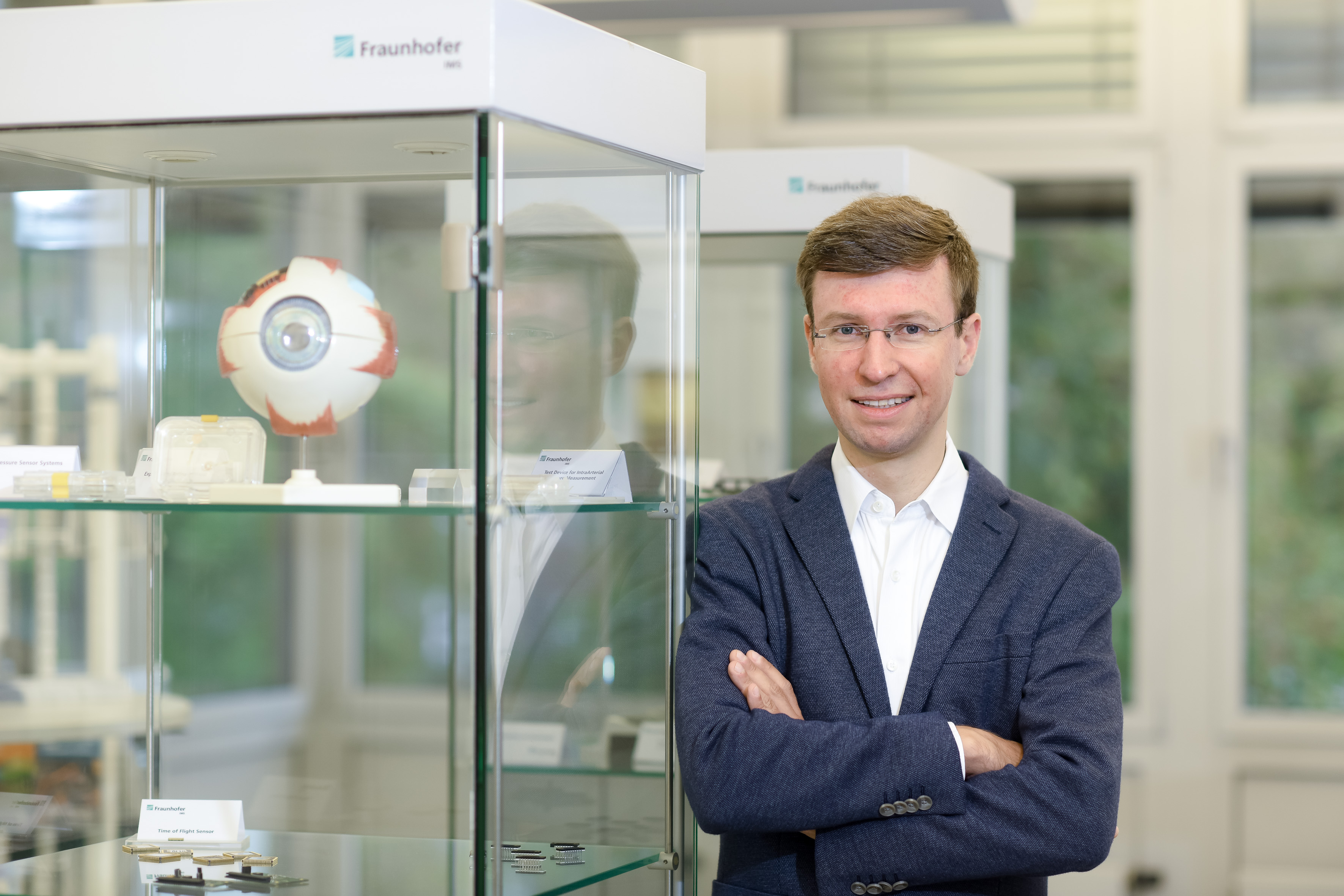Fraunhofer IMS reinforces Biosensors

Prof. Dr. Karsten Seidl is the new head of the department micro- and nanosystems at Fraunhofer IMS in Duisburg. He also holds a chair for medical technology at the University of Duisburg-Essen. Karsten Seidl helps to strengthen the topic area of biosensors at the research institute in Duisburg.
Sensors in miniature format which measure the pressure in the eye, brain or heart have been a main research topic at the Fraunhofer Institute of Microelectronic Circuits and Systems IMS for a long time – they are also a point of focus in the work of Prof. Karsten Seidl. These also include so-called biosensor systems that monitor how organs work and when they have to be assisted, as well as bio nano-sensor systems which are used to analyze the DNA of cancer cells and to realize individual therapies.
Apart from his work in micro- and nanosystems at the IMS, the 36-year-old also accepted an appointment as a professor for medical technology at the faculty of engineering sciences at the University of Duisburg-Essen. “The combination of my work at the IMS and the university provides many opportunities for the research into novel technologies and systems up to application maturity.” Karsten Seidl, who began his work in Duisburg in October 2018, is looking forward to new tasks. Further goals of his at the IMS are the reconstruction of the group Biohybrid Systems as well as the expansion of the laboratories.
Big experience in the field of medical technology
As a product manager at the Bosch subsidiary Robert-Bosch-Healthcare the Dresden-born engineer had most recently developed “Lab-on-Chip” solutions. With these systems even the smallest amounts of liquids can be completely and automatically analyzed. He will also follow this approach in his work at the IMS: ”We want to design these systems significantly more sensitive to detect individual biomolecules. We are going to reduce medical implants into the size of a few micrometers and improve the electronic coupling from the outside.”
In addition to his work at the IMS and the university, Seidl is also active as an honorary board member of the German Society for Biomedical Engineering (DGBMT) and among other things the person responsible for the group Young Professionals as well as the deputy director of the technical committee “Education and Training – BMT in studies”. For his diploma at the John Hopkins University (USA) Karsten Seidl developed a sensor which measures the penetration depth of surgical needles during prostate cancer operations. At the University of Freiburg he did his doctoral studies in 2011 with his work about neuro-implants that measure brain signals and dispenses medications where they are needed in the body. Since 2012 he worked for Bosch.
Fraunhofer IMS
For over 30 years scientists at Fraunhofer IMS in Duisburg have been dealing with the development of microelectronic circuits, electronic systems, microsystems and sensors. Because of its comprehensive know-how, the access to technology and the high-quality development work the Institute is a worldwide recognized partner for the industry. In eight business units Fraunhofer IMS is dedicated to applied research, advance development for products and their applications. Stable, efficient and marketable technologies and procedures that are used in extremely many branches take center stage in contract work.